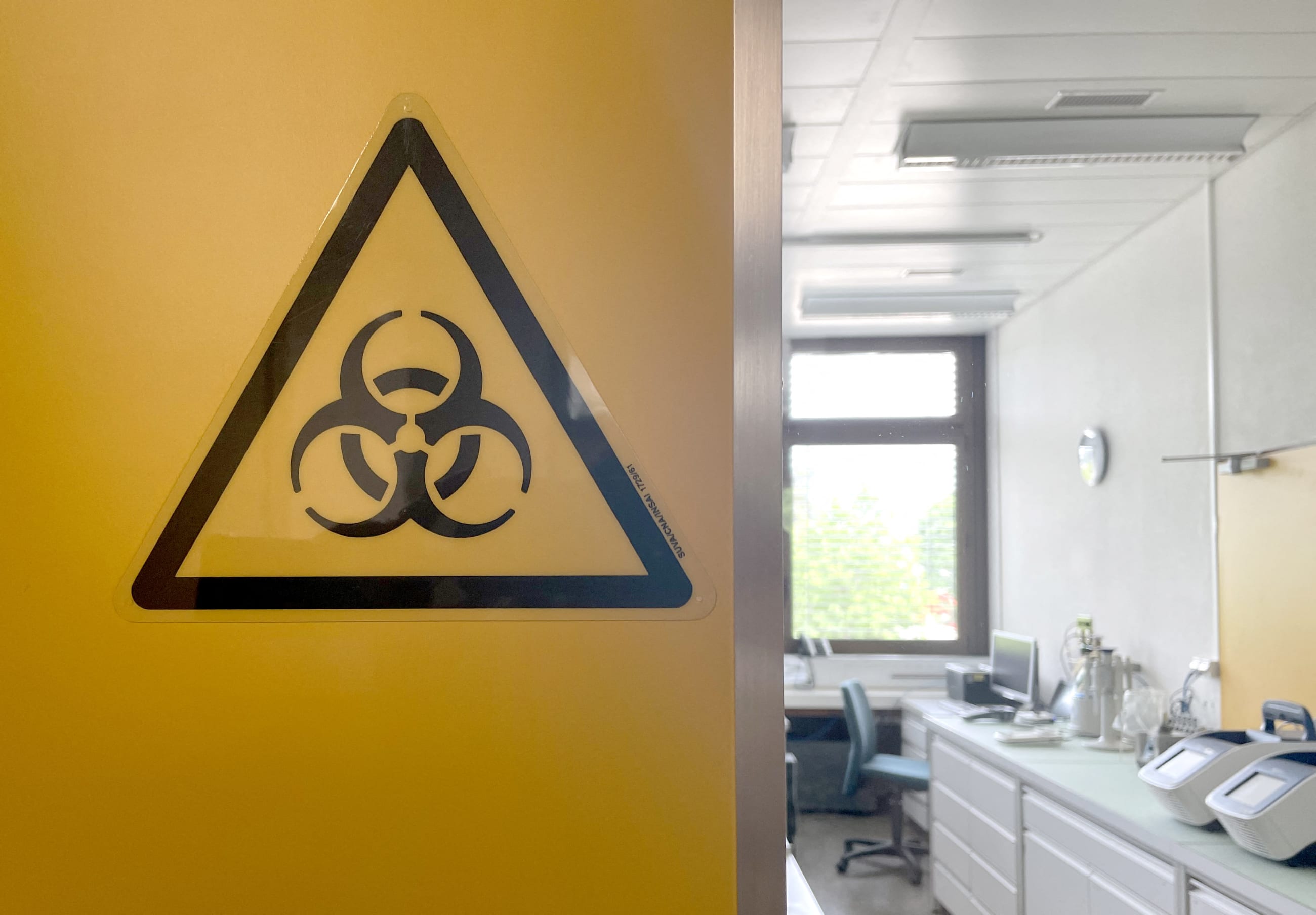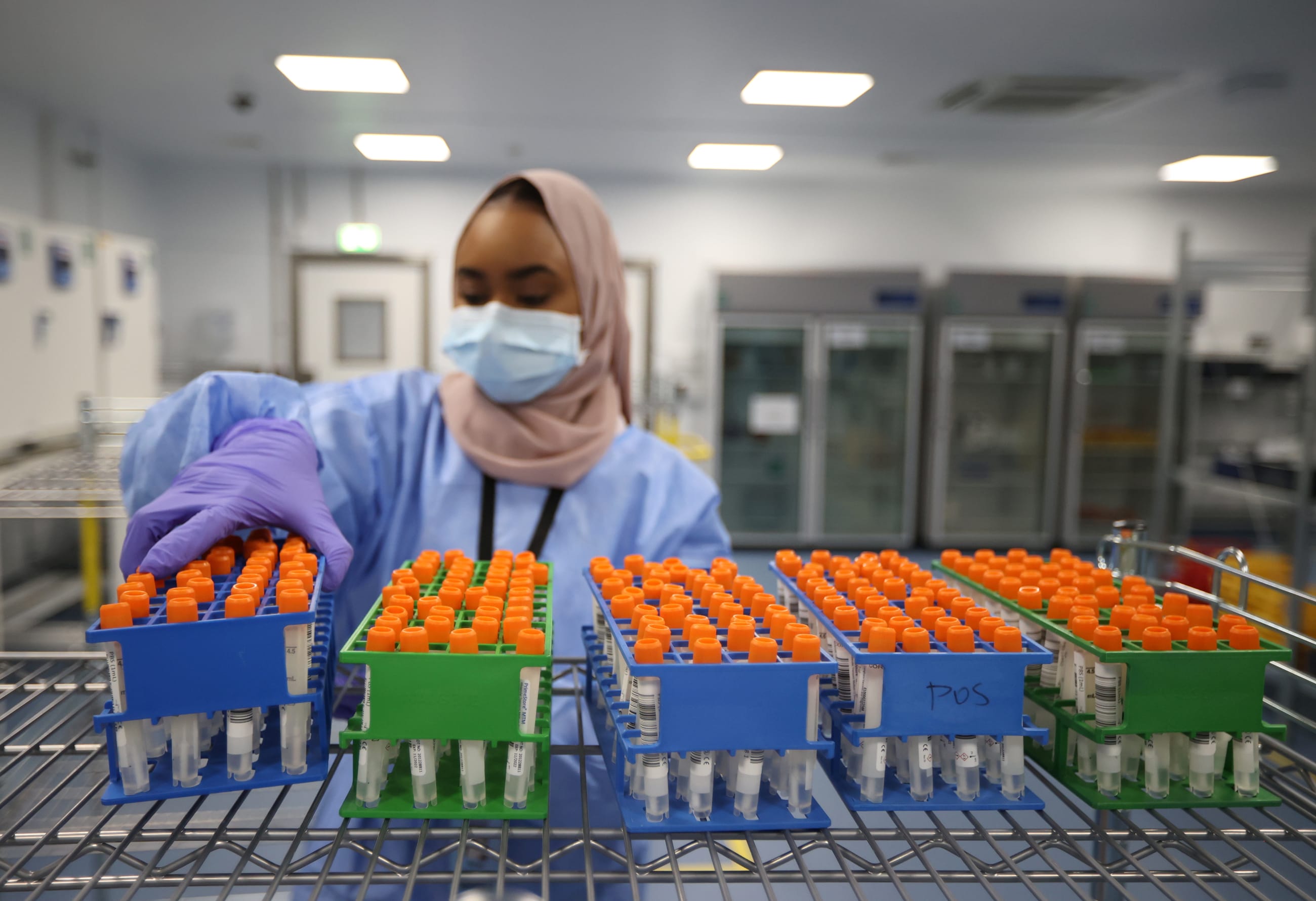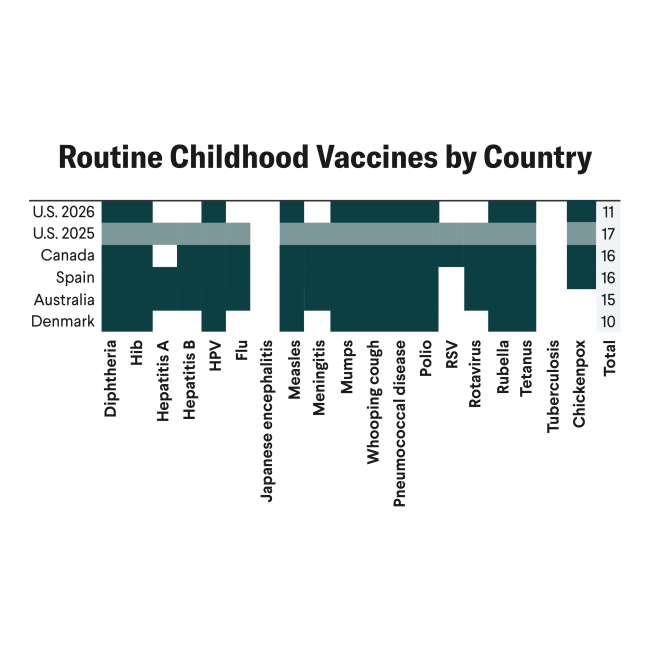During the COVID-19 pandemic, digital bioinformatics platforms such as Nextstrain have been instrumental in detecting the emergence of novel variants, often in real time. These tools provide actionable, time-sensitive information to public health agencies, allowing pandemic response efforts to be efficiently prioritized.
If the next pandemic started tomorrow, this work could be impossible.
Nextstrain and other virus tracking tools rely on digital sequence information (DSI). When a new pandemic virus starts to spread, hospitals and labs worldwide collect samples, sequence their genetic codes, and upload the sequences to a select number of databases—often in just 24 to 48 hours.
The largest database of viral DSI by volume is the Global Initiative on Sharing All Influenza Data (GISAID), which has faced controversy. Initially designed for influenza data and popularized because it promotes equitable scientific collaboration, GISAID's scope expanded rapidly during the COVID-19 pandemic, and the database now serves as a clearinghouse for rapid deposition of viral genome and associated sequences for several diseases. But GISAID has long been considered controversial for its opaque governance, its rules on data access and reuse, and its leadership. In particular, critics have argued that the platform has a track record of capriciously blocking some users' access to data or to the site's full features.
A similar interruption of service would be devastating if it happens in the acute phase of the next pandemic
Most recently, in October 2025, GISAID unexpectedly stopped providing regular updates of its COVID-19 dataset to several bioinformatic services, including Nextstrain—the tool most widely used for genomic epidemiology—as well as covSPECTRUM and outbreak.info. This decision has critically diminished the world's ability to monitor and respond to new COVID-19 variants.
A similar interruption of service would be devastating if it happens in the acute phase of the next pandemic. Public health agencies and researchers reliant on Nextstrain's pre-analyzed and curated information would need to rebuild this capacity, consuming time and resources better spent elsewhere during a public health emergency.
This year's adoption of the World Health Organization (WHO) Pandemic Agreement signals an international desire for a more effective and equitable framework for pandemic preparedness and response. Yet negotiations remain underway to settle terms for the Pathogen Access Benefit Sharing (PABS) system, a mechanism by which countries on the front lines of an emerging outbreak will be guaranteed access to vaccines and other countermeasures in exchange for sharing viral samples and sequences. So far, these negotiations have assumed that access to viral DSI databases will remain unobstructed during the next global emergency.
GISAID cutting access to leading initiatives without justification shows that a multilateral system cannot be built around an independent, unaccountable nongovernmental actor that can unilaterally restrict access to data.

How Can We Move Forward?
The International Nucleotide Sequence Database Collaboration (INSDC) is the most widely used alternative to GISAID. This network includes the U.S. National Center for Biotechnology Information (NCBI), the EU's European Nucleotide Archive (ENA), and the DNA Data Bank of Japan (DDBJ). These platforms share data efficiently with each other, but are characterized by a near-total lack of governance and include problematic features such as anonymous downloads. Government-run databases also have inherent limitations, especially if mutual trust between a nation and potential submitters based overseas is lacking, or if governments can restrict funding, manipulate data, or block access in response to political disputes.
For many scientists, the new open-source, scientist-led platform Pathoplexus and its free software Loculus have been an exciting alternative to GISAID. Pathoplexus is growing slowly, but with sufficient funding could quickly become a reliable alternative.
However, Pathoplexus's participation in the PABS system is not currently guaranteed. The platform's governance documents acknowledge the important conversations occurring around PABS, but any decisions about supporting the PABS system through changes to the code that powers the database have been postponed until governance-side consensus is reached. Pathoplexus's decision is reasonable for scientists without unlimited resources, but leaves member states without a guarantee of a PABS database with buy-in comparable to GISAID.
To complete the PABS negotiations, member states should agree to establish a global, multilateral system for sharing pathogen DSI that deserves both scientists' and governments' trust. Over the past 20 years, the WHO has missed similar opportunities, particularly in the 2011 Pandemic Influenza Preparedness (PIP Framework), and the global health agency showed little interest in developing a sequence database during the last three years of Pandemic Agreement negotiations. In doing so, WHO has undermined its broader leadership on the issue. Member states should seize this moment to force the issue.
The WHO has a track record of success operating global scientific collaborations, most notably including the 73-year-old Global Influenza Surveillance and Response System (GISRS)—the template for the proposed network of laboratories that will share samples in the PABS system. Establishing a complementary sequence-sharing platform would ensure that at least one repository is available to align with PABS. Empowering the WHO to directly supervise data sharing and use would also reduce a layer of verification and boost trust, allaying concerns around legal and political disputes down the road.
The WHO Berlin Hub is in a strong position to establish and maintain this DSI database as the focal point of the International Pathogen Surveillance Network. Software advances such as Loculus could help establish a PABS database quickly and at relatively low cost. Investment in Loculus could also pay off in long-term support for Pathoplexus as a preferred GISAID alternative, including for sequences of nonpandemic pathogens such as West Nile virus or seasonal influenza. Meanwhile, governance could be based on the LISTEN principles, a framework the authors recently proposed that ensures open, but traceable, access to DSI. This framework creates stronger guarantees that data will remain accessible and fully compatible with automatic access, meeting the requirement of initiatives such as Nextstrain.













